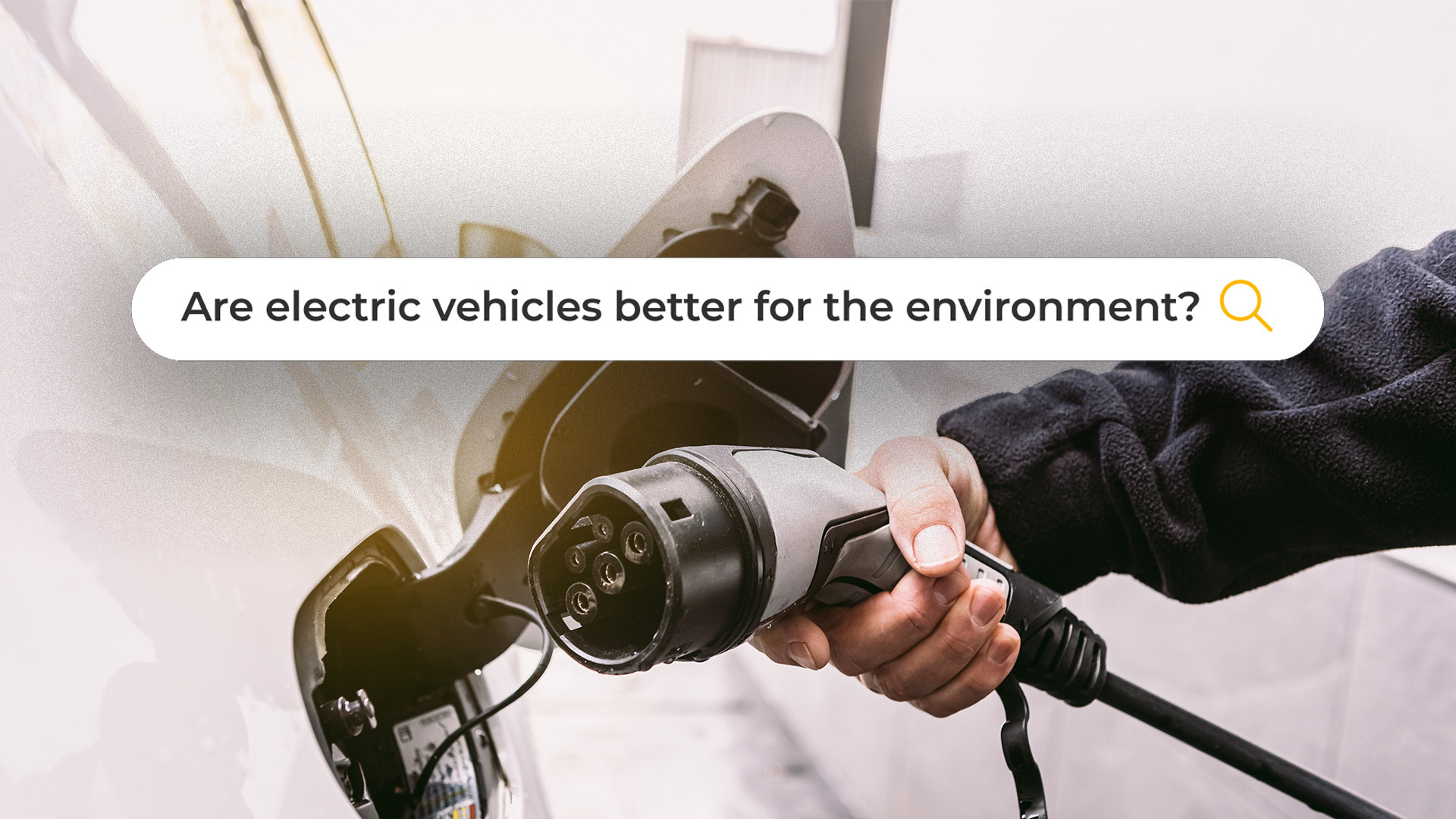
[JACK AYLMER]
HI, I’M JACK AYLMER, THE SAN ENERGY CORRESPONDENT.
AND WE’RE ABOUT TO DO AN AUTOFILL INTERVIEW.
YOU MIGHT SEEN THESE BEFORE ON WIRED, JUST WITH SOME SIGNIFICANTLY MORE FAMOUS PEOPLE.
SO, WHILE YOU MIGHT CARE LESS ABOUT WHAT I HAVE TO SAY THAN SOME LIKE MAYBE DANNY DEVITO.
[DEVITO WIRED]
“Oh I pulled the wrong, I didn’t pull the thing”
[JACK AYLMER]
WHICH FAIR, I GET IT.
I’VE STILL GOT ANSWERS TO SOME OF THE MOST SEARCHED QUESTIONS ON THE WEB.
ONE’S THAT YOU MAY HAVE HAD YOURSELF, WITH INFORMATION WHICH COULD ACTUALLY HELP YOU OUT IN REAL LIFE TOO.
TODAY, WE’RE GOING TO BE ANSWERING A FEW OF THE INTERNET’S MOST BURNING QUESTIONS ABOUT EVS.
FIRST OFF.
[KARAH RUCKER]
“ARE ELECTRIC VEHICLES BETTER FOR THE ENVIRONMENT?”
[JACK AYLMER]
WELL, THE SHORT ANSWER HERE IS YES, BUT NOT RIGHT AWAY.
THAT’S BECAUSE MAKING AN EV REQUIRES MINERALS AND RARE EARTH ELEMENTS.
MATERIALS THAT MUST BE MINED FROM THE EARTH AND THEN REFINED BEFORE THEY CAN BE USED.
THIS RESULTS IN THE PROCESS OF CREATING AN EV GENERATING UP TO 80 PERCENT MORE EMISSIONS THAN WHAT IT WOULD TAKE TO BUILD A GAS POWERED CAR.
IT’S ONLY AFTER AN EV HAS BEEN DRIVEN FOR ABOUT 15,000 MILES THAT IT WILL BECOME RESPONSIBLE FOR LESS EMISSIONS THAN CONVENTIONAL VEHICLES.
IN OTHER WORDS, AN EV HAS TO DRIVE MORE THAN HALFWAY AROUND THE ENTIRE PLANET BEFORE IT BECOMES ECO FRIENDLY.
BUT, ONCE THAT HURDLE IS CLEARED, AN EV WILL ULTIMATELY BE MUCH BETTER FOR THE ENVIRONMENT.
ONCE A TYPICAL EV BATTERY REACHES THE END OF ITS LIFESPAN AT AROUND 200,000 MILES, IT WILL BE RESPONSIBLE FOR ONLY ABOUT HALF OF THE TOTAL EMISSIONS CREATED BY A GAS POWERED CAR.
IF YOU’RE LOOKING FOR A DEEPER DIVE ON THE ANSWER TO THIS QUESTION, CHECK OUT ONE OF THESE STORIES ON SAN.COM WHERE WE BREAK IT DOWN FURTHER.
NEXT UP.
[KARAH RUCKER]
“ARE ELECTRIC VEHICLES MORE EXPENSIVE TO INSURE?”
[JACK AYLMER]
WE KNOW EVS CAN COST MORE THAN YOUR TYPICAL VEHICLE, ON AVERAGE RUNNING PEOPLE ABOUT 5,000 DOLLARS MORE ON THE STICKER PRICE.
BUT BUYING INSURANCE FOR YOUR NEW EV WILL ALSO COME AT A PREMIUM.
TYPICALLY DRIVERS OF GAS POWERED VEHICLES WILL PAY ABOUT 165 DOLLARS A MONTH TO INSURE THEIR CAR.
MOST EV DRIVERS WILL HAVE TO FORK OVER MORE THAN TWICE THAT MUCH.
COLLISION REPAIR AND INSURANCE DATA PROVIDED MITCHELL GIVES SOME INSIGHT INTO WHY THIS IS.
SEE, ELECTRIC VEHICLES CONSIST OF MORE EXPENSIVE PARTS, WHICH WHEN DAMAGED IN AN ACCIDENT, WILL ALSO COST MORE TO FIX.
MITCHELL FOUND THAT CRASH REPAIR COSTS FOR AN EV USUALLY WERE ALMOST 1,000 DOLLARS HIGHER THAN A GAS CAR.
SO, INSURANCE PROVIDERS WILL CHARGE MORE FOR EV PREMIUMS TO OFFSET THE LARGER MAINTENANCE COSTS.
AND, FINALLY.
[KARAH RUCKER]
“ARE ELECTRIC VEHICLES WORTH IT?”
[JACK AYLMER]
WELL, THIS IS A LITTLE LESS BLACK AND WHITE, BUT LET’S BREAK IT DOWN.
WE’VE ALREADY COVERED HOW EVS ARE MORE EXPENSIVE.
FROM UPFRONT COSTS AND INSURANCE PREMIUMS, TO MAINTENANCE AND HOME CHARGER INSTALLATION FEES, THESE CARS ABSOLUTELY COST MORE IN THE SHORT TERM.
YAHOO FINANCE ESTIMATES THAT WHEN FACTORING IN ALL THESE DIFFERENT HIDDEN EXPENSES, THERE’S ABOUT A 13,000 PRICE DIFFERENCE IN OWNING AN EV VERSUS A TYPICAL CAR.
BUT, THERE IS A CATCH.
SIMILAR TO AN EV BECOMING MORE ENVIRONMENTALLY FRIENDLY OVER TIME, ITS AFFORDABILITY ALSO IMPROVES.
AFTER ABOUT FIVE TO SIX YEARS, DEPENDING ON THE MODEL, AN EV WILL EVENTUALLY BREAK EVEN AND PROVE LESS EXPENSIVE THAN A GAS CAR.
THAT COMES FROM SAVING ON TRIPS TO THE GAS STATION, WITH EV DRIVERS SAVING MORE THAN A THOUSAND DOLLARS EVERY YEAR BY POWERING THEIR CAR UP WITH ELECTRICITY.
VEHICLES THAT QUALIFY FOR FEDERAL TAX CREDITS ALSO BECOME MORE AFFORDABLE MUCH QUICKER THAN THOSE THAT DON’T.
A TAX CREDIT ELIGIBLE VEHICLE CAN EXPECT TO SEE SAVINGS IN THAT PREVIOUSLY MENTIONED 5 TO 6 YEAR WINDOW.
BUT A NON-ELIGIBLE EV MAY NOT SEE THE BREAK EVEN POINT UNTIL A WHOLE DECADE LATER.
JUST SOMETHING TO KEEP IN MIND IN CASE YOU’RE WONDERING IF THOSE TAX CREDITS REALLY ARE WORTH IT.
THAT’LL BRING US TO THE END OF OUR AUTOFILL INTERVIEW TODAY.
IF I MISSED A QUESTION YOU HAD ABOUT EVS OR YOU’VE GOT OTHER ENERGY RELATED TOPICS YOU WANT TO ASK ABOUT, DROP THEM IN THE COMMENTS BELOW AND WE MIGHT ANSWER THEM IN OUR NEXT VIDEO.








